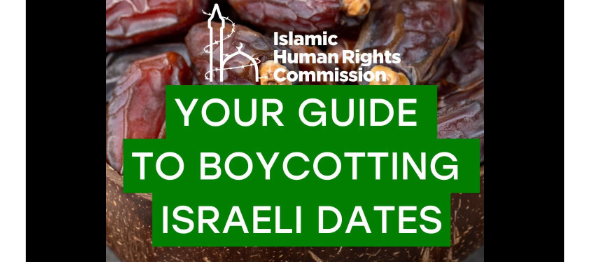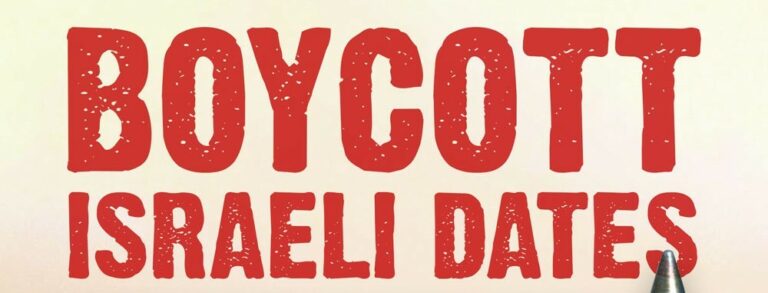Eid al-Adha (the festival of sacrifice) commemorates the Prophet Ibrahim’s (alayhi salaam) complete submission to Allah. Ibrahim (as) had already proven his dedication to Allah through his mission and personal sacrifices. He had a dream in which Allah instructed him to sacrifice his only son, Ismail (as). Recognizing this as a divine test, Ibrahim (as) prepared to carry out Allah’s command. He took Ismail with him to Mount Arafat, intending to perform the sacrifice.
Ibrahim (as) shared his dream with Ismail, who demonstrated equal devotion and accepted Allah’s will. Both father and son showed immense faith and obedience in this challenging trial. As Ibrahim was about to sacrifice Ismail, Allah stopped him and declared that Ibrahim had fulfilled the vision and passed the test. Instead of Ismail, Allah provided a ram for the sacrifice, honouring their sincere submission.
Allah says in the Qur’an:
˹Remember˺ when Abraham was tested by his Lord with ˹certain˺ commandments, which he fulfilled. Allah said, “I will certainly make you into a role model for the people.” (2:124)
The Prophet Muhammad (sallAllahu alayhi wa sallam), the direct descendant of Ibrahim alayhi salaam, was tasked to restore the religion of Ibrahim (Islamic monotheism) and the ritual practices that were passed down by Ibrahim.
Practices
On Eid ul-Adha, Muslims begin the day with ghusl (a full-body purification), dress in their best clothes, and attend a special prayer at a mosque or outdoor ground. They greet each other with “Eid Mubarak,” exchange gifts—especially for children—and visit friends and family. A key ritual is Qurbani, the sacrifice of a healthy adult animal like a sheep, goat, or cow, with the meat shared among family, friends, and the poor. Alternatively, some donate to charity to help others celebrate. Communal meals are also often organized by mosques or local groups.
IHRC Bookshop & Gallery have been offering 15% discount off all items. The discount code is HAJJ2025. Hurry, offer ends on 11 June 2025.
Scroll down and see some of the books we have in stock.
We have some announcements for you.
In accordance with our commitment to helping those who are oppressed, we are collecting Qurbani donations from those Muslims intending to perform their Udhiyya or Qurbani in places where the less fortunate can avail themselves of its sustenance and blessings.
The Prophet Muhammad ﷺ said “The one who wholeheartedly performs Qurbani of an animal for reward, the Qurbani will serve as a barrier between him and hellfire.”
Will we respond to this desperate plea and alleviate the sufferings of fellow Muslims in Yemen, Lebanon, Nigeria and the Rohingya in Bangladesh?
TODAY is the last chance to donate your Qurbani so if you wish to donate, please click below.
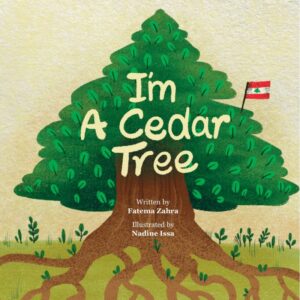 IHRC’S NEW PUBLICATION – I’M A CEDAR TREE
IHRC’S NEW PUBLICATION – I’M A CEDAR TREE
“I’m A Cedar Tree” is a captivating journey through time, tracing the story of the majestic Cedrus libani of Lebanon. From its roots in the era of ancient Prophets to its enduring presence as a symbol of resilience and resistance, this enchanting tale weaves history, culture, and nature into a celebration of the monumental cedar tree.
Packed with fascinating facts and a powerful narrative, it invites young readers to discover the strength of nature and the enduring spirit of its land and people.
When purchasing the book, please click on the option: ‘I’m a Cedar Tree’.
All profits from the sale of this book will go to the IHRC Trust’s Lebanon Appeal
Watch: Author Evening with Mahdi Yazdi – Quranic Infographics
2 years ago, IHRC hosted an online author evening event with Mahdi Yazdi who discussed his publication, Quranic Infographics: A Collection of Illustration Inspired by the Quran. Click below to watch the video.
Mahdi Yazdi is the founder of SalamComics. He works with a brilliant team of local illustrators producing exclusive products for his clients. Mahdi has devoted his life to building bridges between communities through the language of art.
Below are the books we have currently in stock at IHRC Bookshop:
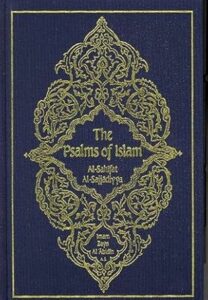 The Psalms of Islam – Al-Sahifat al-Sajjadiyya
The Psalms of Islam – Al-Sahifat al-Sajjadiyya
Al-Sahifat al-Sajjadiyya is the oldest manual of supplications in Islamic sources, and one of the most seminal works of Islamic spirituality. It was composed in the 8th century AD by the Prophet’s great grandson, Ali b. al-Husayn, known as Zayn al-Abidin, who was revered in his own time as an exemplar of piety and as a foremost authority on prophetic traditions and law. He is counted by the Shi’a as the fourth of their Imams, and among them the Sahifa ranks behind the Qur’an and Ali b. Abi Talib’s Nahj al-Balagha.
The present translation is thoroughly annotated and is accompanied by a translation of another work attributed to Zayn al-Abidin, The Treatise on Rights. Together, these texts will contribute significantly to our understanding of Islamic spirituality and of the Muslim’s standing in relation to God and the community, not only in the early period, but, given the widespread use of the Sahifa as a devotional guide, up to the present day. Readership: scholars and students of religion and theology, within the Muslim and non-Muslim worlds; and students of the Middle East and the history of ideas.
An invaluable collection of Hadith related by 150 women who were witness to the Prophets life, according to the six cannonical books of Islam. Includes any variations of Hadiths presented as well as the biographies of over 600 female companions of the Prophet ﷺ.
Other books on Islam and Women in stock:
Al-Muhaddithat: The Women Scholars in Islam – A. Nadwi
Aisha al-Ba’uniyya: A Life in Praise of Love – Th. Emil Homerin
Women Around The Prophet – Khalid Muhammad Khalid Remona Aly
Women in Islam: What the Qur’an and Sunnah Say by Abdur Raheem Kidwai
In The Name of Women’s Rights: The Rise of Femonationalism – Sara R. Farris
Being Muslim: A Cultural History of Women of Color in American Islam – Sylvia Chan-Malik
Female Islamic Education Movements – Masooda Bano
Daughters of Eve: Islam and Female Emancipation – M. Jamal Haider
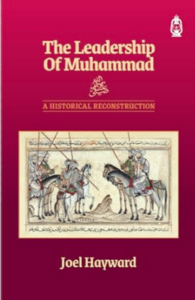 The Leadership of Muhammad: A Historical Reconstruction – Joel Hayward [Hardback]
The Leadership of Muhammad: A Historical Reconstruction – Joel Hayward [Hardback]
Given Prophet Muhammad’s immense impact on history, there are surprisingly few books that specifically analyse his leadership. The few that exist maintain that Muhammad was a wonderful leader because he was a wonderful man; that is, he succeeded in his mission because of his superior morality and personal qualities. Although it is widely agreed that Muhammad was a moral and decent man, this explanation seems incomplete and almost inadequate.
Joel Hayward approaches the Prophet’s leadership from a different vantage point by scrutinising ancient sources to ascertain whether Muhammad’s conscious actions, behaviour, and methods can provide any substantial and meaningful insights about the effectiveness of his strategic leadership.
Through meticulous research and rigorous analysis, Hayward demonstrates that Muhammad was an uncommonly astute and self-reflective man with the ability to create and communicate a believable strategic vision of a necessary and desirable future. This engaging yet deeply scholarly book makes a major contribution to both leadership studies and the Prophet’s biography.
Also available at IHRC Bookshop are:
The Warrior Prophet Muhammad and War – Joel Hayward
Muhammad (s): 11 Leadership Qualities that Changed the World – Nabeel Al-Azami
Muhammad the Perfect Man – Sayyid Muhammad ibn ‘Alawi al-Maliki al-Hasani
Meeting Muhammad – Omar Suleiman
 The Ultimate Eid Gift – Reem Alajmi
The Ultimate Eid Gift – Reem Alajmi
Aminah and Ali are two young siblings eagerly awaiting Eid Al-Fitr, a Muslim religious holiday that happens once a year. While embracing the last few days of the holy month of Ramadan, Aminah and Ali join their parents for prayer rituals and help decorate their home for Eid.
Despite the excitement of preparing for the holiday, Aminah is frustrated. As the night winds down, Aminah asks Mama how she can make dua in hopes of getting what she wants.
Will Aminah learn how to make dua on her own and receive the ultimate Eid gift she’s been waiting for?
Also available at IHRC Bookshop are:
An Enjoyable Eid – Hanis Hanani Tahir
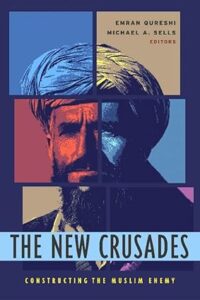 The New Crusades: Constructing the Muslim Enemy
The New Crusades: Constructing the Muslim Enemy
The New Crusades takes head-on the idea of an emergent “Cold War” between Islam and the West.
It explores the historical, political, and institutional forces that have raised the specter of a threatening and monolithic Muslim enemy and provides a nuanced critique of much received wisdom on the topic, particularly the “clash of civilizations” theory.
Bringing together twelve of the most influential thinkers in Middle Eastern and religious studies-including Edward Said, Roy Mottahedeh, and Fatema Mernissi – this timely collection confronts such depictions of the Arab-Islamic world, showing their inner workings and how they both empower and shield from scrutiny Islamic radicals who operate from similar paradigms of inevitable and absolute conflict.
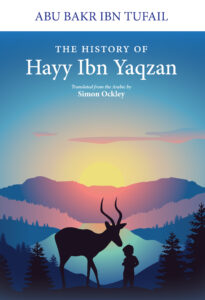 The History of Hayy Ibn Yaqzan – Abu Bakr Ibn Tufail
The History of Hayy Ibn Yaqzan – Abu Bakr Ibn Tufail
Hayy ibn Yaqzan is the only extant work of Ibn Tufail today. It is a short philosophical romance, but so great has been its influence on the succeeding generations in the West that it has come to be recognised as “one of the most remarkable books of the Middle Ages”.
The story revolves around Hayy ibn Yaqzan, a little boy who grew up on an island in the Indies under the equator, isolated from the people, in the bosom of an antelope that raised him feeding him with her milk.
Hayy has just learned to walk, imitating the sounds of antelopes, birds and other animals in his surrounding, he learns the languages of the animals around him; and he learns to guide himself to the actions of animals by imitating their instinct. He makes his own shoes and clothes from the skins of animals, studies the stars, till he reaches a higher level of knowledge of the finest of astrologist.
His continuous explorations and observation of creatures and environment led him to gain great knowledge in natural science, philosophy and religion. He will conclude that, at the basis of the creation of the universe, a great creator must exist. Hayy ibn Yaqzan lived a humble modest life of a Sufi and forbade himself from eating meat.
Once thirty years old, he met the first human, who landed on his isolated Island. By the age of forty-nine years, he will be ready to teach other people about the knowledge he gained throughout his life.

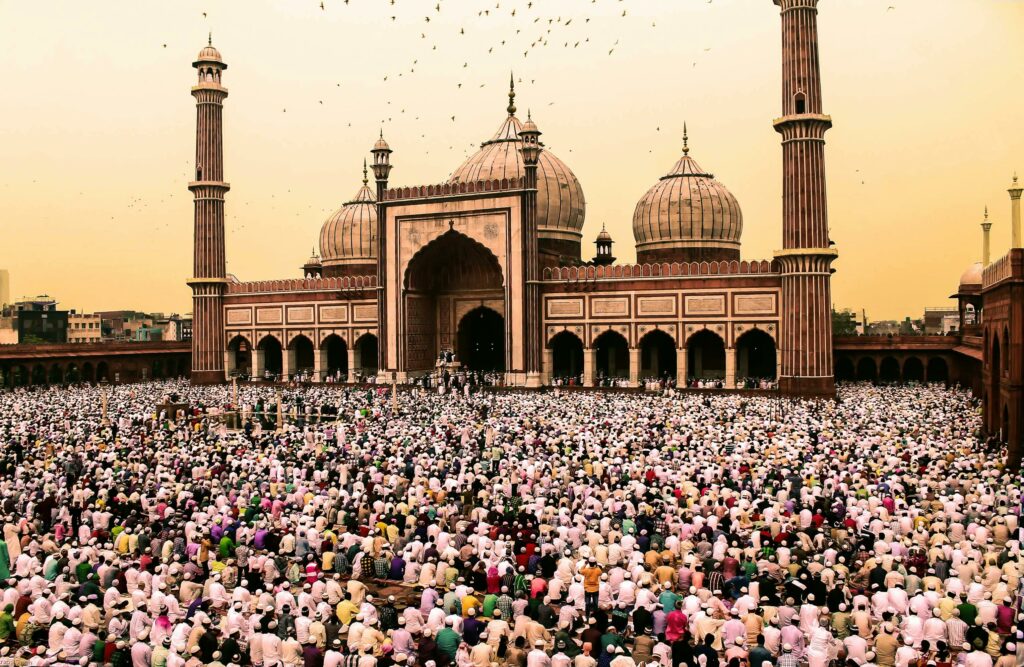
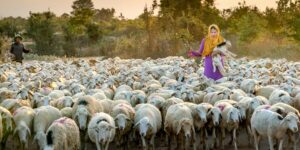 Donate your Qurbani
Donate your Qurbani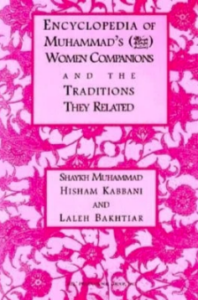 Encyclopedia Of Muhammad’s Women Companions And the Traditions They Related – Shaykh Muhammad, Hisham Kabbani & Laleh Bakhtiar
Encyclopedia Of Muhammad’s Women Companions And the Traditions They Related – Shaykh Muhammad, Hisham Kabbani & Laleh Bakhtiar
